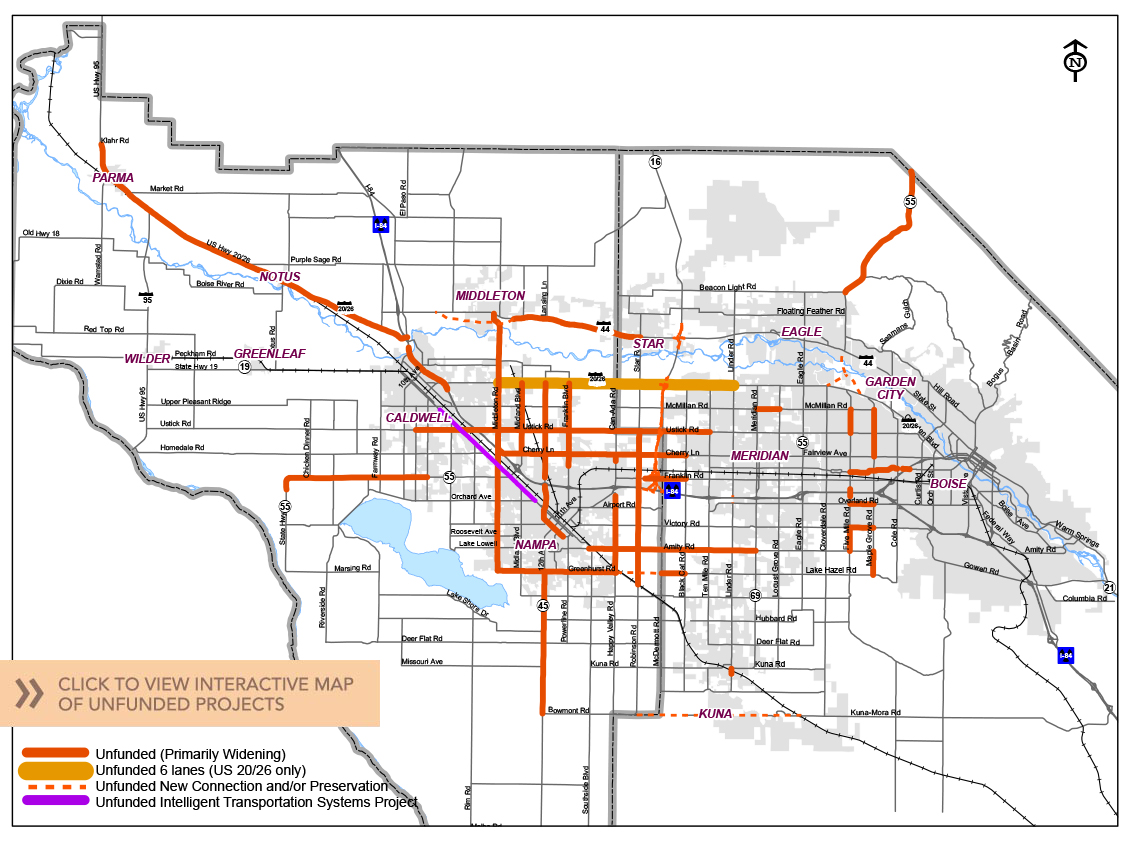
Unfunded Needs
What do you do if you need more than you can afford?
Long-range transportation plans, such as Communities in Motion 2040 2.0, develop goals and forecast future growth, then identify transportation needs and projects accordingly.
The plan allocates federal funding to address ongoing maintenance, operations, and similar expenses, as well as capital projects. It also shows projects funded with other sources to provide a complete picture of how the region is addressing its transportation needs.
In Ada and Canyon Counties, there is not enough funding to meet all needs; therefore, many are left unfunded, including capital projects, maintenance, and more. The unfunded capital project needs are discussed below; others are discussed in the Financial Plan.
Based on conservative estimates, the region is about $5.5 billion short of meeting transportation needs between now and 2040 – that’s an average of $291 million per year, or about $380 per year per person living in Ada and Canyon Counties.
The COMPASS Board of Directors has directed that federal funding allocated through Communities in Motion 2040 2.0 be focused on maintaining the existing transportation system, while strategically addressing unfunded regional priorities. To guide COMPASS in strategically addressing the most important needs first, the unfunded capital needs have been prioritized in three categories – state, local, and public transportation system.
What Are the Capital Priorities?
Unfunded capital needs, separated into state, local, and public transportation system priorities, are identified on the map below. Click on the image to access an interactive map, then click on any of the projects in the map to learn more about it, or view the three lists to see the projects in priority order.
COMPASS works to ensure that all areas of the Treasure Valley receive the same consideration for transportation projects. Areas with higher than average low income and/or minority populations are shown on the interactive map (Environmental Justice Consideration Areas) to help ensure these areas receive equal treatment when considering transportation projects.
What Happens Now?
These unfunded priorities don’t just sit on the shelf. COMPASS will be actively seeking additional funding – from applying for one-time grants to supporting a long-term solution to the funding shortfall – to address these unfunded needs.
Webpage updated 12/31/2021



